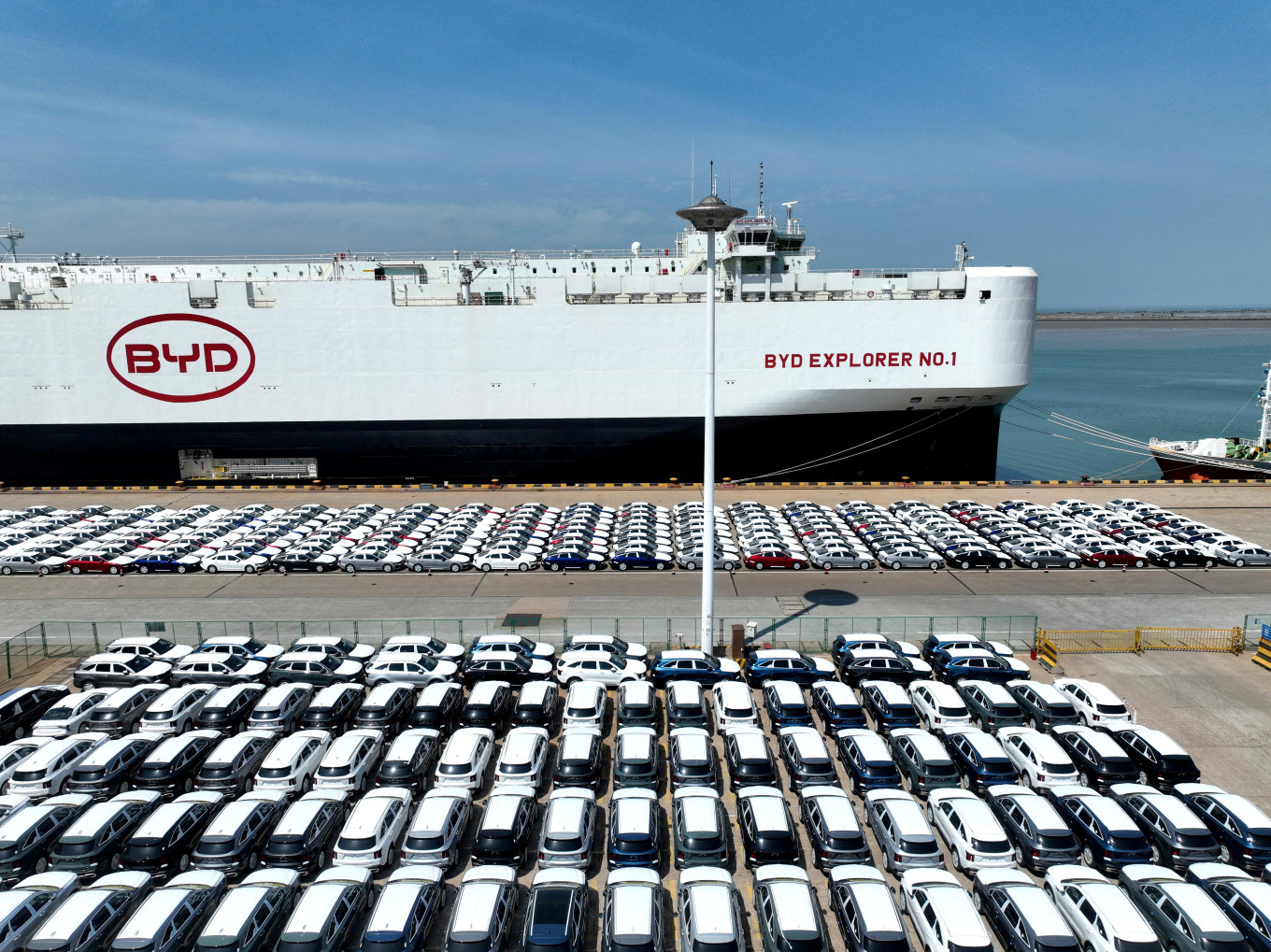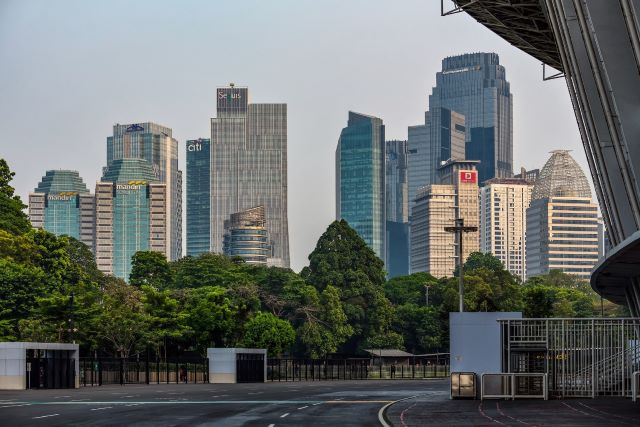Popular Reads
Top Results
Can't find what you're looking for?
View all search resultsPopular Reads
Top Results
Can't find what you're looking for?
View all search resultsChina's exports grow at fastest pace in over two years
Change text size
Gift Premium Articles
to Anyone
C
hina's outbound shipments grew at the fastest pace in over two years in October as factories rushed inventory to major export markets in anticipation of further tariffs from the US and the European Union, as the threat of a two-front trade war looms.
With Donald Trump being elected as the next US president, his pre-election pledge to impose tariffs on Chinese imports in excess of 60 percent is likely to spur a shift in stocks to warehouses in China's No.1 export market.
Trump's tariff threat is rattling Chinese factory owners and officials, with some US$500 billion worth of shipments annually on the line, while trade tensions with the EU, which last year took $466 billion worth of Chinese goods, have intensified.
Export momentum has been one bright spot for a struggling economy as household and business confidence has been dented by a prolonged property market debt crisis.
Outbound shipments from China grew 12.7 percent year-on-year last month, customs data showed on Thursday, blowing past a forecast 5.2 percent increase in a Reuters poll of economists and a 2.4 percent rise in September.
Imports fell 2.3 percent, compared with expectations for a drop of 1.5 percent, turning negative for the first time in four months.
"We can anticipate a lot of front-loading going into the fourth quarter, before the pressure kicks in come 2025," said Xu Tianchen, senior economist at the Economist Intelligence Unit.
"I think it is mainly down to Trump. The threat is becoming more real."
China's exports to the US increased an annual 8.1 percent last month, while outbound shipments to Europe jumped 12.7 percent over the same period.
"We expect shipments to stay strong in the coming months," Zichun Huang, China economist at Capital Economics, said in a note. "Any potential drag from Trump tariffs may not materialize until the second half of next year."
"Trump's return could create a short-term boost to Chinese exports as US importers increase their purchases to get ahead of the tariffs," she added.
Trade data from South Korea and Taiwan pointed to cooling global demand, while German manufacturers have also reported they are struggling to find buyers overseas, leading analysts to conclude Chinese producers are slashing prices to find buyers or simply moving stocks out of China.
An official factory activity survey for October showed Chinese factories were still struggling to find buyers overseas.
"If the PMI new export sub-index has been going down, and the export figure goes up, I think it is safe to say it's more of an inventory shift," said Dan Wang, a Chinese economist based in Shanghai.
Exporters also had help from a positive turn in the weather, enabling them to send out delayed orders.
Typhoon Bebinca brought Shanghai to a standstill for one day in September, causing severe disruption to one of China's busiest ports. In the eastern province of Jiangsu a violent tornado killed at least 10 people and several other regions suffered heavy rain and strong winds, disrupting production.
Natural disasters cost China 230 billion yuan ($32.23 billion) in direct economic losses over the third quarter, according to data from the Ministry of Emergency Management.
Economists have cautioned Chinese policymakers against becoming too reliant on outbound shipments for growth and urged officials to introduce more stimulus.
Analysts are now turning their attention to a $1.4 trillion fiscal package officials are likely to sign off on this week, which they expect to stabilize local government and property developers' balance sheets and ease the strains that have weighed on consumption.
China's trade surplus came in at $95.27 billion last month, up from $81.71 billion in September.











